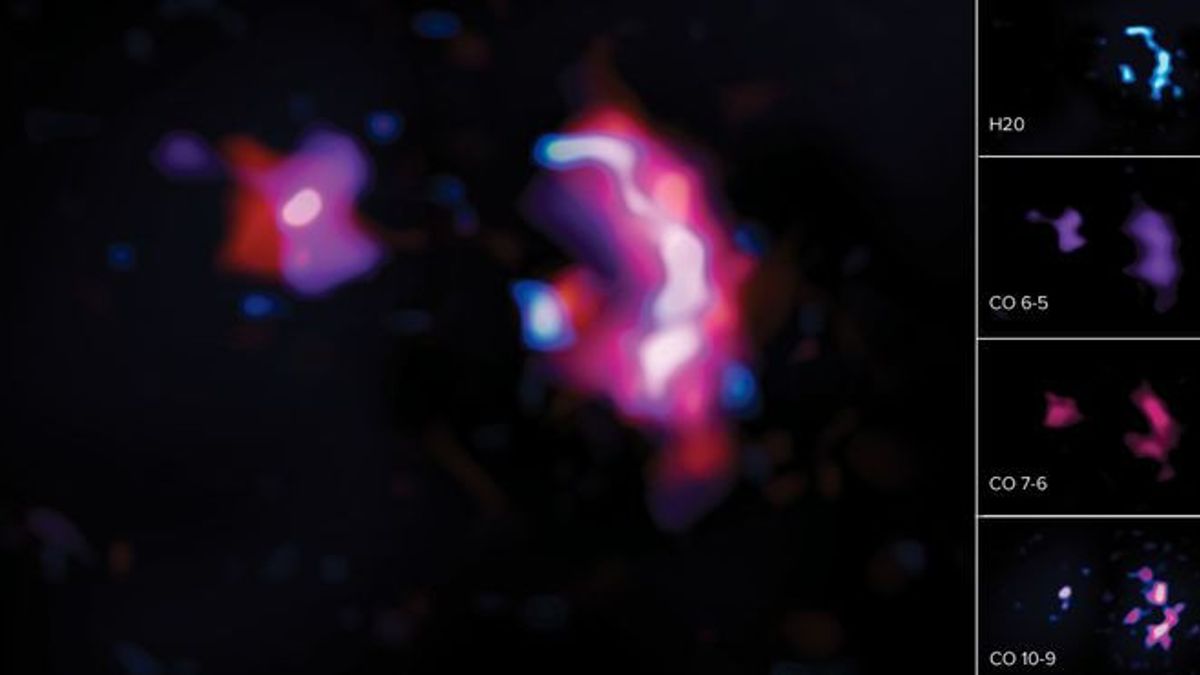JAKARTA - Space is a vast and expansive “animal,” and thanks to extraordinary new research from the ALMA radio telescope, scientists have just discovered the farthest detection of water in a galaxy.
Compared to the life we know of on Earth, it can be difficult to understand how big the universe really is. Even our own galaxy is huge compared to Earth. The Milky Way has between 100 and 400 billion stars, at least 100 billion planets, and has a radius of 52.850 light years.
However, the Milky Way is only a tiny dot compared to the entire observable universe. In a universe with a radius of 46.5 billion light years, it is estimated that there are about 2 trillion galaxies in the entire universe.
Each galaxy, star, and planet has its own story to tell and each one seems more interesting than the last. There are still many scientists who have yet to reveal about the universe, but progress is being made every day. Just last week, researchers claimed to have discovered the first planet outside the Milky Way which paves the way forward for further discoveries beyond our galaxy.
Now, another group of scientists has discovered something even more enthralling. Per a report from Phys.org, the ALMA radio telescope in Chile was used to detect water in "the most massive galaxy in the early universe."
The galaxy, known as SPT0311-58, is 12.88 billion light years from Earth. The findings reveal several things. First, it shows that H20 (and carbon monoxide) was very abundant in the early universe. It also marks the furthest water ever detected in a star-shaped galaxy in the universe.
While the discovery of SPT0311-58 is quite interesting, understanding how the scientists did it is even more impressive. Consisting of two galaxies combined, ALMA initially detected SPT0311-58 in 2017. Scientists decided to take a closer look at the entity, and after doing so, found water inside.
SEE ALSO:
As explained by Sreevani Jarugula, the astronomer who led the research paper for the discovery states: "Using high-resolution ALMA observations of molecular gas in a galaxy pair known collectively as SPT0311-58, we detected water and carbon monoxide molecules in the larger galaxy, two galaxies."
Jarugula further explains that SPT0311-58 has "more gas and dust than any other galaxy in the early universe, which gives us many potential opportunities to observe the abundant molecules and to better understand how these life-creating elements influenced the development of the beginning of the universe."
Discoveries like these are important for several reasons. Not only is it interesting as a stand-alone thing, but it also helps add context and new information to other findings. Now scientists know water exists in a galaxy more than 12 billion light years from Earth. They can use it to learn more about the birth of not only the universe, but the Milky Way and Planet Earth as well.
The English, Chinese, Japanese, Arabic, and French versions are automatically generated by the AI. So there may still be inaccuracies in translating, please always see Indonesian as our main language. (system supported by DigitalSiber.id)


















